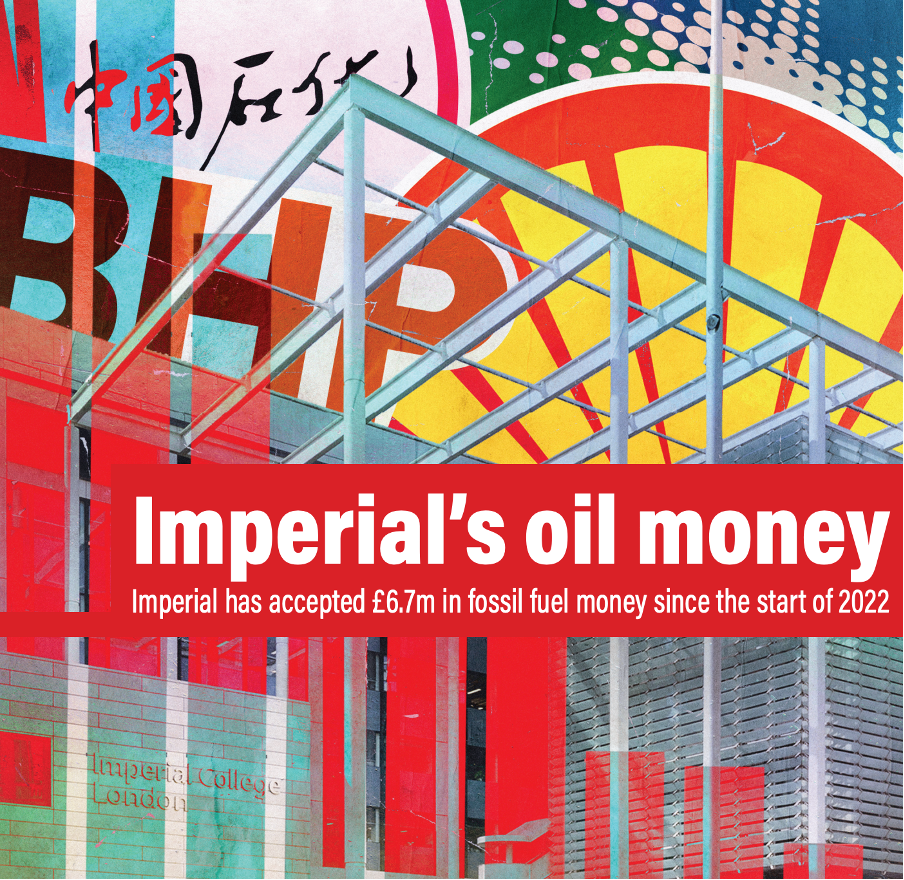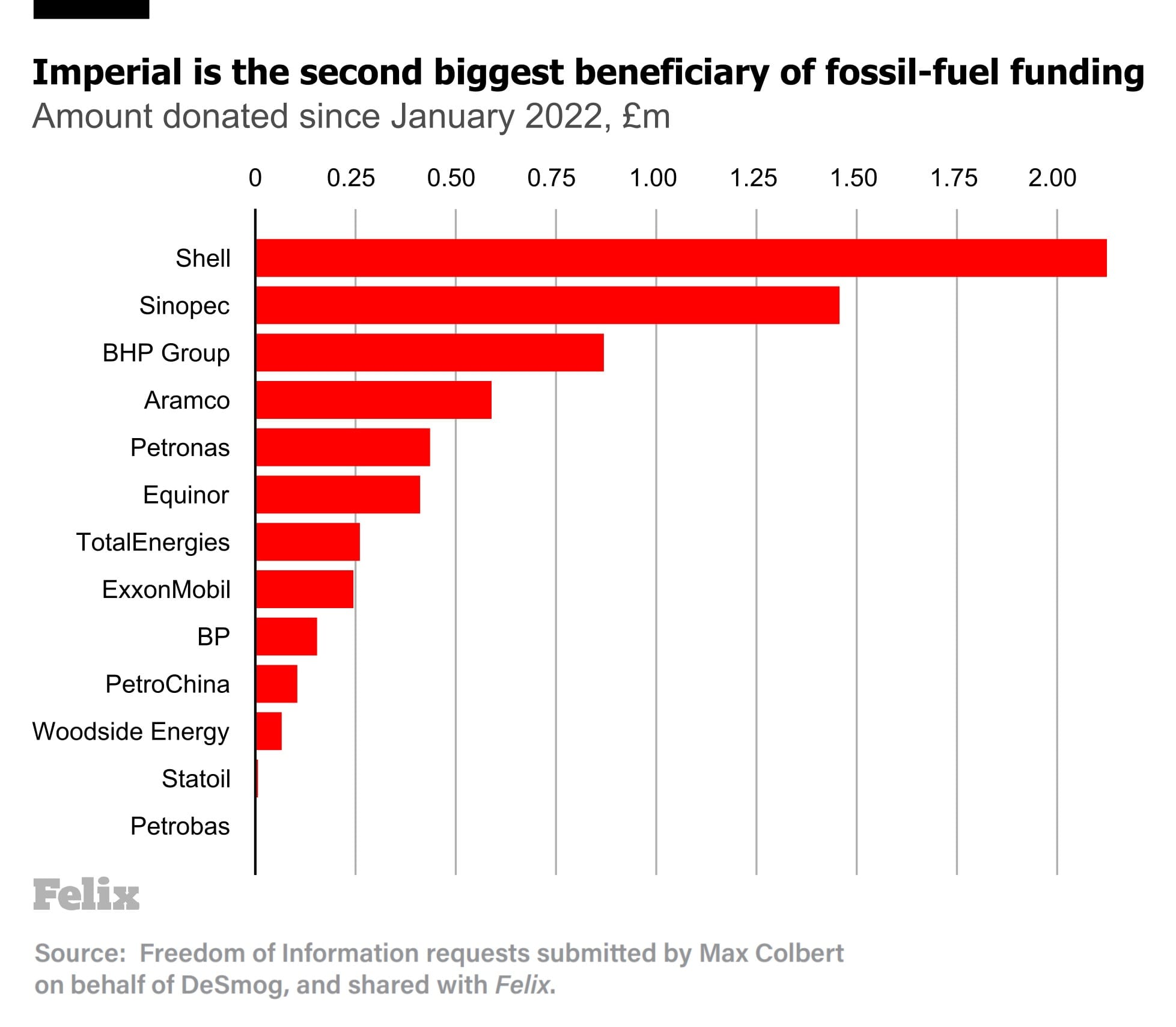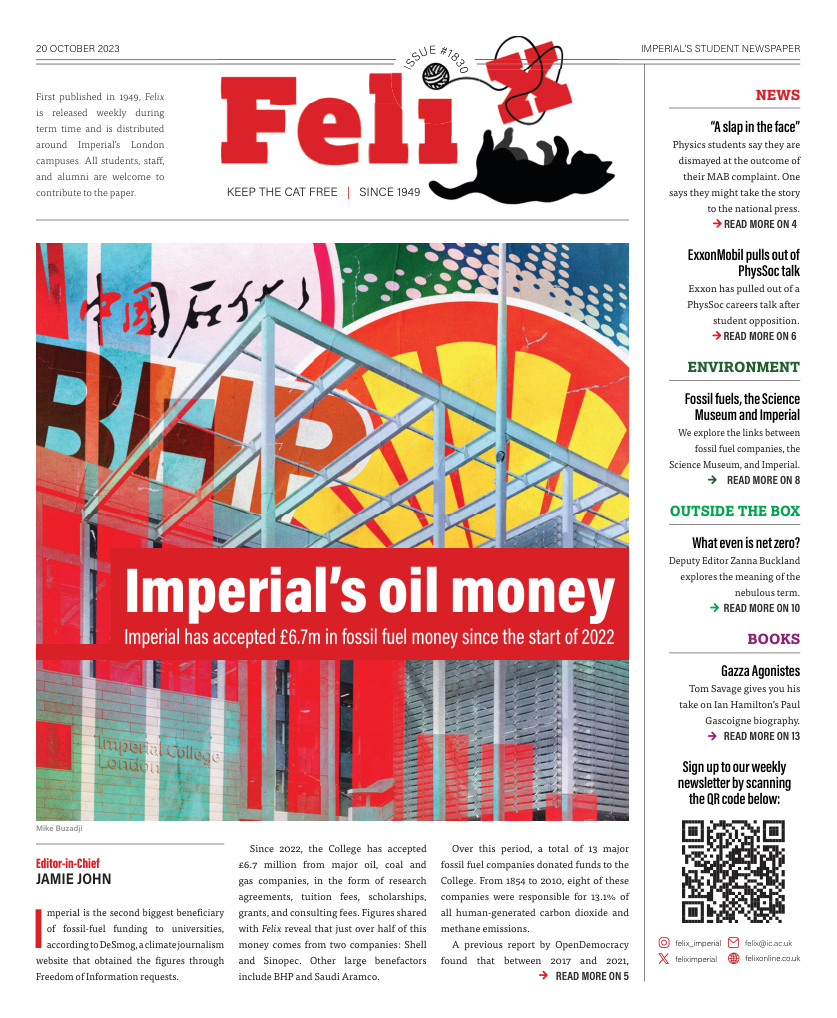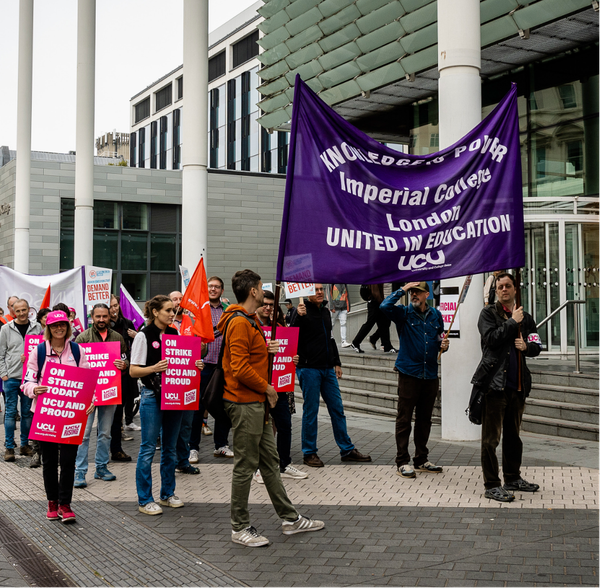Imperial's oil money
Imperial is the second biggest beneficiary of fossil-fuel funding to universities.

Imperial is the second biggest beneficiary of fossil-fuel funding to universities, according to DeSmog, a climate journalism website that obtained the figures through Freedom of Information requests.
Since 2022, the College has accepted £6.7 million from major oil, coal and gas companies, in the form of research agreements, tuition fees, scholarships, grants, and consulting fees. Figures shared with Felix reveal that just over half of this money comes from two companies: Shell and Sinopec. Other large benefactors include BHP and Saudi Aramco.

Over this period, a total of 13 major fossil fuel companies donated funds to the College. From 1854 to 2010, eight of these companies were responsible for 13.1% of all human-generated carbon dioxide and methane emissions.
A previous report by OpenDemocracy found that between 2017 and 2021 Imperial had accepted over £54 million from major oil companies – the next biggest beneficiary at the time was the University of Cambridge, which had received £15 million over the same five-year period. In total, the top 10 biggest beneficiaries received £86.6 million.
An Imperial College London spokesperson said: “As part of our ongoing commitment to working towards a sustainable future, Imperial College London pledged in 2020 that it will only engage in research partnerships with fossil fuel companies where the research forms part of their plans for decarbonisation, and only if the company demonstrates a credible strategic commitment to achieving net zero by 2050. We will no longer accept funding from fossil fuel companies that is directed at propagating the existing extraction business.”
Who are the four biggest benefactors?
Sinopec is a Chinese state-owned oil and gas company. Its parent company is the world’s largest oil refining, gas and petrochemical conglomerate.
Saudi Aramco is a Saudi Arabian state-owned oil and gas company, and is the second-largest company in the world by revenue.
BHP is the largest mining company in the world by market capitalisation.
Shell is a British oil and gas company. It is the largest company by market capitalisation listed on the FTSE 100.







